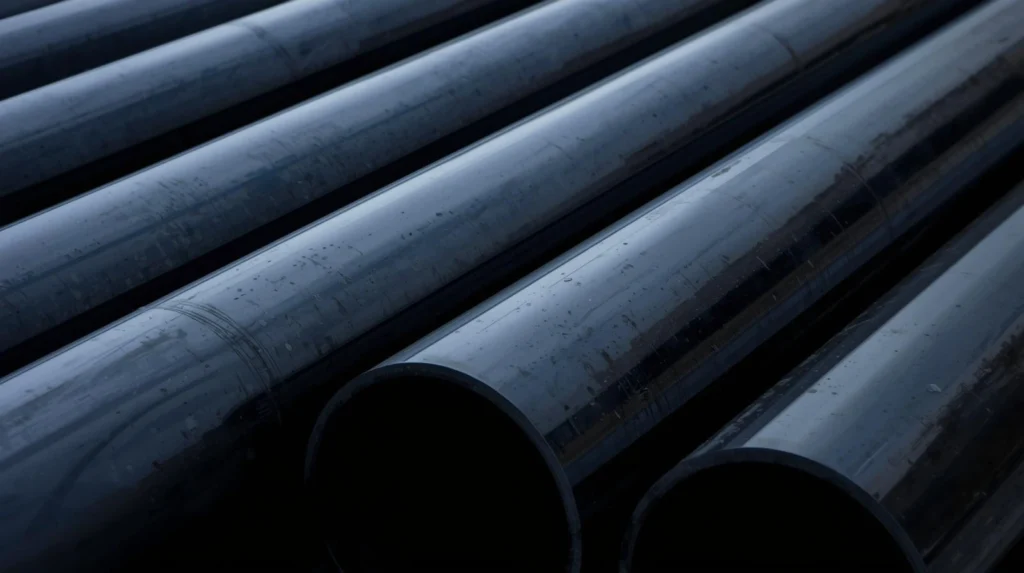When it comes to plumbing, nothing is more frustrating than dealing with leaks, corrosion, and unexpected repairs. Whether you’re a homeowner, business owner, or contractor, plumbing failures can disrupt daily life and cost you a fortune. But what if there was a way to avoid these costly issues?
Enter HDPE (High-Density Polyethylene) pipes. These modern marvels of plumbing technology offer an effective, durable solution to many of the problems that plague traditional pipe systems in Pakistan. From corrosion to joint leaks, HDPE pipes are fast becoming the go-to material for those seeking long-term, hassle-free plumbing solutions.
In this blog post, we will dive deep into the world of HDPE pipes and explore how they can help you avoid common plumbing failures. By the end, you’ll have a thorough understanding of why HDPE pipes are a game-changer in the plumbing industry, particularly in Pakistan.
What Are HDPE Pipes and Why Are They Important?
What makes HDPE pipes different from traditional pipes?
HDPE pipes are made from a thermoplastic polymer known as high-density polyethylene. This material is known for its exceptional strength, flexibility, and resistance to corrosion, making it a superior choice for plumbing. Unlike traditional metal pipes (such as steel or copper), which can corrode over time, HDPE pipes are immune to rust, scaling, and chemical degradation.
This makes HDPE pipes an ideal choice in Pakistan, where plumbing systems are often subject to harsh environmental conditions and water contamination. These pipes are also resistant to a wide range of chemicals and bacteria, ensuring that water transported through them remains clean and safe.
Pro Tip:
HDPE pipes are not just resistant to corrosion—they are also incredibly flexible. This means they can expand and contract with temperature changes without cracking or breaking.
How Do HDPE Pipes Help Prevent Plumbing Failures?
What plumbing problems can HDPE pipes prevent?
In Pakistan, many plumbing systems suffer from common issues like leaks, corrosion, and blockages. These problems arise due to the use of outdated materials or poorly installed systems. HDPE pipes provide an effective solution to these issues by offering the following benefits:
- Corrosion Resistance:
Traditional pipes made of steel or copper are prone to rust and corrosion, especially in areas with high humidity or water with high mineral content. HDPE pipes, on the other hand, are resistant to corrosion, ensuring that your plumbing system lasts longer and requires less maintenance. - Leak Prevention:
One of the most common plumbing failures is leaking joints. In traditional piping systems, leaks can occur at the joints due to poor sealing or material degradation. HDPE pipes are typically welded together, creating a seamless connection that is leak-resistant and eliminates the need for gaskets or seals. - Durability in Harsh Conditions:
Pakistan’s water systems often experience fluctuating temperatures and high water pressure, which can cause pipes to crack or burst. HDPE pipes are designed to withstand high pressures and extreme temperatures, making them ideal for the diverse conditions found across the country. - Long Lifespan:
Unlike traditional pipes that can degrade over time, HDPE pipes have a service life of 50 to 100 years. This long lifespan makes them a cost-effective solution for both residential and commercial plumbing systems.
How Does HDPE Installation Compare to Traditional Pipe Systems?
Is HDPE pipe installation easier and more affordable?
Installing HDPE pipes is a straightforward process that requires minimal tools and expertise. In fact, HDPE pipes can be welded together using fusion technology, which eliminates the need for complicated fittings and joints. This not only makes installation faster but also more affordable compared to traditional piping systems, which often require expensive labor and specialized tools.
In addition to being quicker and cheaper to install, HDPE pipes also require less maintenance after installation. Since they are resistant to corrosion and leaks, you won’t need to worry about constant repairs or replacements, saving you money in the long run.
Pro Tip:
For the best results, ensure that HDPE pipes are installed by professionals who are trained in fusion welding. Proper installation will maximize the lifespan and efficiency of your plumbing system.
Are HDPE Pipes Suitable for Residential and Commercial Use?
What makes HDPE pipes ideal for different types of plumbing systems?
HDPE pipes are versatile and can be used in a wide variety of plumbing applications. Whether you’re dealing with a small residential system or a large-scale commercial or industrial setup, HDPE pipes offer the flexibility and durability needed to ensure the system functions smoothly.
For residential plumbing, HDPE pipes are an excellent choice for water supply lines, sewage systems, and drainage. Their resistance to chemicals and corrosion ensures that your home’s plumbing will remain in top condition for years.
For commercial properties, HDPE pipes can be used in large-scale water distribution systems, irrigation systems, and even in the food and beverage industry where hygiene and safety are paramount. The material’s strength and durability make it suitable for high-pressure and high-volume systems.
Pro Tip:
In large commercial setups, HDPE pipes can be used for fire sprinkler systems due to their fire-resistant properties.
How Are HDPE Pipes Environmentally Friendly?
Are HDPE pipes a sustainable choice for plumbing systems?
HDPE pipes are considered one of the most environmentally friendly options in the plumbing industry. Not only are they 100% recyclable, but their long lifespan also means fewer replacements and less waste. Additionally, the production of HDPE pipes uses less energy compared to traditional materials like steel and copper.
By choosing HDPE pipes for your plumbing system, you’re not only saving on long-term maintenance costs but also contributing to environmental sustainability. This is particularly important in Pakistan, where the government and various organizations are making efforts to promote green building practices and eco-friendly infrastructure.
The Future of Plumbing in Pakistan: HDPE Pipes Leading the Way
How are HDPE pipes shaping the future of plumbing?
As Pakistan continues to develop and modernize, the demand for reliable, cost-effective, and environmentally friendly plumbing solutions is growing. HDPE pipes are at the forefront of this transformation, offering a future-proof solution to the challenges faced by traditional plumbing systems.
In the coming years, we can expect HDPE pipes to become the standard choice for both residential and commercial plumbing projects in Pakistan. With their superior performance, easy installation, and long-term cost savings, HDPE pipes are poised to revolutionize the plumbing industry in the country.
Conclusion
In conclusion, HDPE pipes are the secret to avoiding common plumbing failures in Pakistan. Their resistance to corrosion, leak prevention, durability, and ease of installation make them an ideal choice for homeowners, business owners, and contractors alike. By switching to HDPE pipes, you can ensure that your plumbing system remains reliable for years to come, saving you time, money, and frustration.
If you’re ready to upgrade your plumbing system, consider making the switch to HDPE pipes. Consult with a professional plumber to determine the best options for your needs and ensure a smooth, efficient installation process.
FAQs
1. What is the lifespan of HDPE pipes?
HDPE pipes have a lifespan of 50 to 100 years, making them a long-term investment for any plumbing system.
2. Can HDPE pipes be used for gas lines?
Yes, HDPE pipes are suitable for both water and gas lines, as they are resistant to corrosion and leaks.
3. How are HDPE pipes installed?
HDPE pipes are typically welded together using fusion welding, ensuring a seamless and leak-resistant connection.
4. Are HDPE pipes resistant to high temperatures?
Yes, HDPE pipes can withstand temperatures up to 80°C (176°F) and are ideal for hot water systems.
5. How do HDPE pipes compare to PVC pipes?
HDPE pipes are more durable, flexible, and resistant to chemical degradation than PVC pipes. They also have a longer lifespan.
6. What are the environmental benefits of HDPE pipes?
HDPE pipes are 100% recyclable, energy-efficient to produce, and have a long lifespan, reducing the need for frequent replacements and waste.
7. Can HDPE pipes be used for outdoor plumbing?
Yes, HDPE pipes are UV-resistant and can be used for both indoor and outdoor plumbing systems.


